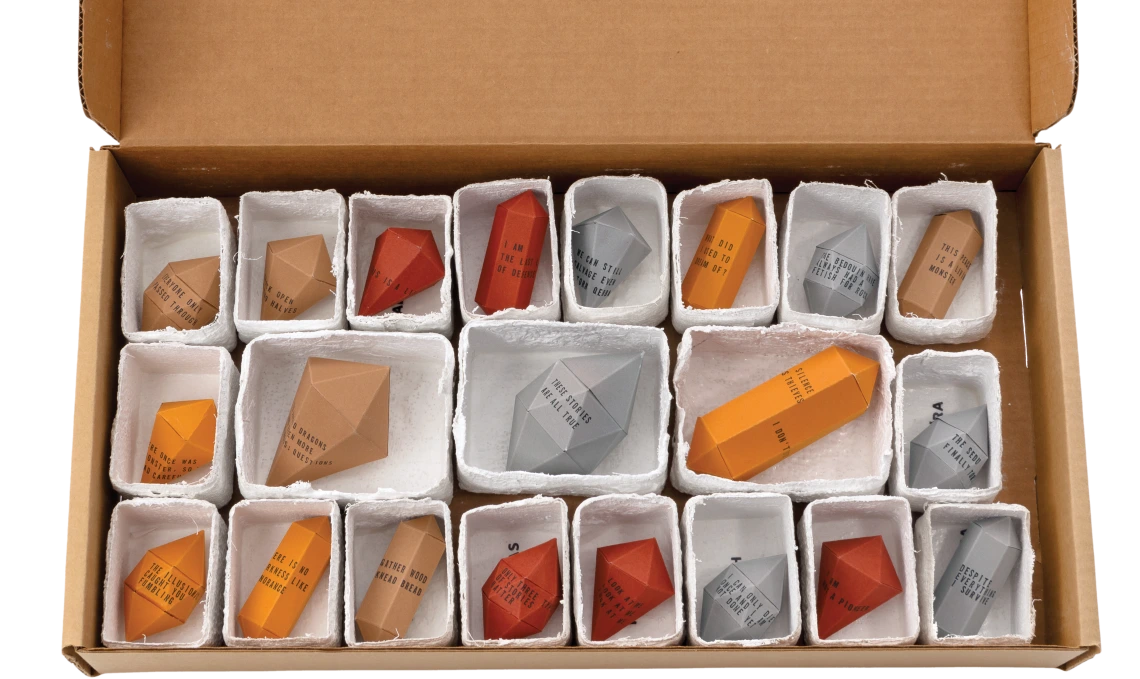Rare Gems at the Poetry Center

“Tem” is part poetry collection, part invitation to discovery — a book in the form of a mineral collection box containing 21 origami gemstones, each featuring a line of poetry. The gems are nestled in handcrafted plaster containers stamped with Arabic words. All 21 poems in the collection are printed in their full form on accompanying individual broadsides contained in an envelope within the box.
The Arabic word tem means “to finish; to complete.” The narrative threading across this poetry collection wrestles with how difficult it is to ever truly be done with your past. Written by Wided Rihana Khadraoui and published by Container Press, the story that unravels through “Tem” relates to the forgotten deities of the pre-Islamic Bedouin of the Arabian Peninsula.
A book object like “Tem” defies linearity.
“Book objects in general really arrest the attention,” says Sarah Kortemeier, library director at the University of Arizona Poetry Center, part of the College of Humanities. “They exist to surprise us. When you open the box ‘Tem’ is in, you have to stop and critically evaluate each role in the process.”
“Do I want to read the full poems first? Do I want to pick up the gems and compare them? Do I want to let a single word in Arabic resonate in my brain?” Kortemeier asks. “There are different ways to read this object, and that is the point. You end up making almost archaeological discoveries in the act of reading, and that enacts the content of this piece, which is about uncovering hidden mythologies.”
Only 25 copies of “Tem” exist, and one of those copies is preserved in the Poetry Center’s L.R. Benes Rare Book Room. The collection holds over 3,000 items, ranging from historic treasures like a first edition of T.S. Eliot’s “The Waste Land,” to ephemera such as Robert Frost’s Christmas cards — as well as poetry objects like “Tem.”
Most items in the collection are too fragile to withstand shelf wear, but, thanks to the Poetry Center’s preservation efforts, the rare books are available for public viewing. All one has to do is ask a librarian for access.
“All we do at the Poetry Center is done in the name of public access. It’s important that anyone who wants access to the poetic art form should be able to experience these treasures,” Kortemeier says. “There aren’t many libraries that collect some of these materials, and we are often the first library to catalog certain pieces.”
The Poetry Center has remained physically closed during the coronavirus pandemic. Poetry lovers can experience treasures from the Rare Books Room virtually through online exhibits at poetrycenter.omeka.net and tune into the podcast Poetry Centered, which is hosted by guest curators who present selected tracks from Voca, the Poetry Center’s audiovisual archive.
